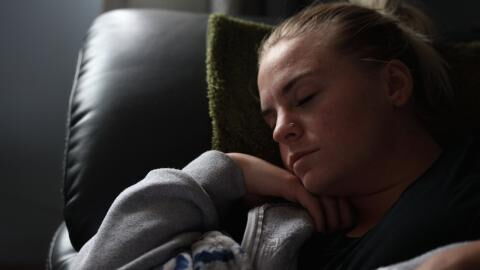Nothing helps us recover from a hard day like a nap. However, many of us tend to wake up feeling worse than when drifted off.
Discover our latest podcast
However, it turns out that there are some tricks you can use to avoid that dreaded groggy feeling.
Dr Karan Raj, the TikToker who brought us the gem ‘why you should wear socks in bed’ has delivered once again, this time helping us how to really nap right.
The TikTok starhas been flooding our feeds with helpful tricks these last few months and to add to the collection of advice, Raj has revealed just when and for how long we should nap to avoid feeling groggy.
Dr Raj posted to his account stating: ‘I wanna tell you the secret to the perfect length of a nap and the best time to nap.’
He then went on to explain the concept of the ‘Goldilocks nap’. Not too long and not too short, this nap circles through all parts of the sleep cycle without interruption:
The 'Goldilocks nap'. Nap for 90 minutes. Ninety minutes allows you to cycle through all the sleep stages - that's one cycle of sleep. Any longer or shorter you risk sleep inertia, that feeling of grogginess.
But if you’re more concerned about when to sleep to ensure you won’t end up staying awake all night, Dr Raj has got you covered.
The best time to nap is between 1pm and 4pm. Sleeping any later will drop your adenosine levels too low so you won't feel sleepy at night.
Karan went on to explain exactly what adenosine is and how it affects your sleep patterns… In layman’s terms of course.
Adenosine is a sleep molecule, when it's high, we feel sleepy, when it's low, we feel alert. Sleeping reduces adenosine levels.
@dr.karanr Don’t tell anyone #learnontiktok#SportsDirectRepRace#schoolwithdrkaran#sleep#nap
♬ Steven Universe - L.Dre
So there, if you want to revamp your kips, try napping at 1pm for exactly 90 minutes.
Sweaty sheets?
In another recent video the TikToker also shared another sleeping trick with us, one that sweaty sleepers may want to keep in mind.
In the video, Karan urges people not to make their beds straight away after waking up as the moisture and dusty skin cells shedded overnight create a perfect environment for mites:
Making your bed in the morning traps dust mites that have accumulated over night. These microscopic predators, which are less than a millimetre long, feed on the scales of human skin and thrive in moist environments.
@dr.karanr Stop making your bed #learnontiktok#schoolwithdrkaran#sleep#bed
♬ Steven Universe - L.Dre
He explained that ‘When we sleep at night, our bodies become warm and sweaty, making them prime targets for these mites to feed on.’ These mites will then leave behind excretions which have the potential to give people allergies and asthma. He continued:
Instead leave your bed messy just for a while. It exposes these mites to air and sunlight, which dehydrates them and causes them to die.
We knew there had to be a valid reason for not making our beds!















